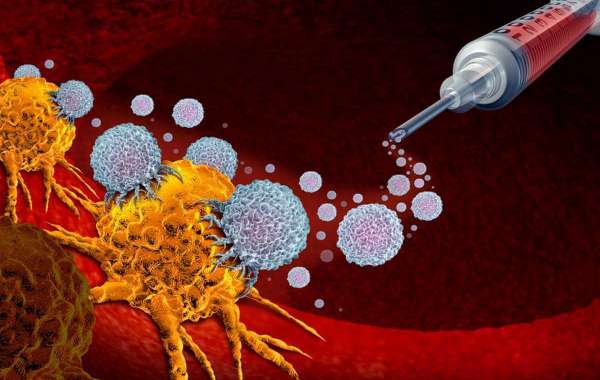Dendritic cell therapy, a cutting-edge form of immunotherapy, has emerged as a beacon of hope in the realm of cancer treatment. This groundbreaking approach harnesses the body's own immune system to combat cancer. In this article, we will explore the intricacies of dendritic cell therapy, covering what it is, how it works, the types of cancers it can address, the drugs used, and the precautions and benefits of this innovative treatment.
What are Dendritic Cells?
Dendritic cells are a type of immune cell with a unique ability to recognize foreign invaders like viruses, bacteria, and cancer cells. They act as sentinels of the immune system, capturing antigens from these invaders and presenting them to other immune cells. Dendritic cells are crucial in initiating and regulating the immune response, making them key players in dendritic cell therapy.They are the only cells of the immune system that can initiate antigen-specific immune responses.The dendritic cell was discovered by Ralph Steinman in 1973. Steinman, a physician- scientist at the Rockefeller University, New York, thought of using these cells in fighting diseases including HIV and cancer.
What is Dendritic Cell Therapy?
In cancer, the immune system fails; cells of the immune system fail to recognize the cancer cells. Dendritic cell therapy is a form of immunotherapy that revolves around the utilization of dendritic cells to activate the patient's immune system against cancer. Dendritic cells play a pivotal role in the immune system, acting as messengers that recognize and present antigens to other immune cells, such as T-cells. In cancer treatment, dendritic cell therapy aims to stimulate the immune response against cancer cells, effectively "training" the body to recognize and attack them.
How Dendritic Cell Therapy Works
Dendritic cell therapy operates through a series of intricate steps:
Dendritic Cell Collection: Dendritic cells are harvested from the patient's blood or tumor tissue.
Dendritic Cell Activation: In the laboratory, these dendritic cells are exposed to cancer-specific antigens, effectively preparing them to recognize cancer cells.
Reinfusion: The activated dendritic cells are then reintroduced into the patient's body, where they serve as messengers, alerting the immune system to the presence of cancer.
Immune Response: Once activated dendritic cells encounter cancer cells, they stimulate the immune system, especially T-cells, to target and destroy the cancerous cells.
Types of Cancers that Can Be Cured with Dendritic Cell Therapy
Dendritic cell therapy has shown promise in treating various types of cancers, including but not limited to melanoma, prostate cancer, kidney cancer, and certain forms of leukemia. It is particularly effective in cancers that are known to have a strong immune response.
Drugs Used in Dendritic Cell Therapy
Dendritic cell therapy is often used in combination with other immunotherapies, such as checkpoint inhibitors (e.g., Pembrolizumab and Nivolumab) and cytokines like Interleukin-2. These drugs enhance the immune response and the effectiveness of dendritic cell therapy.
Precautions and Benefits of Dendritic Cell Therapy
Precautions:
Patient Selection: Dendritic cell therapy may not be suitable for all patients. A thorough evaluation is necessary to determine eligibility.
Side Effects: Common side effects include fever, chills, fatigue, and injection site reactions, but they are typically mild and short-lived.
Monitoring: Close monitoring of the patient's response and any potential adverse effects is crucial during and after treatment.
Benefits:
Enhanced Immune Response: Dendritic cell therapy strengthens the patient's immune system, potentially leading to a more effective and sustained response against cancer.
Low Toxicity: Compared to some traditional cancer treatments, dendritic cell therapy is generally well-tolerated and has fewer severe side effects.
Personalized Treatment: The therapy can be tailored to the individual patient, focusing on their specific cancer type and characteristics.
Promising Results: Dendritic cell therapy has shown significant promise in clinical trials and real-world applications, with some patients experiencing long-lasting remissions.
Conclusion
Dendritic cell therapy represents a groundbreaking approach in the fight against cancer. By harnessing the body's immune system, it offers a personalized and low-toxicity treatment option for various types of cancer. While it is not a guaranteed cure, the potential benefits and promising results make it a beacon of hope in the quest to improve cancer treatment outcomes. Patients considering dendritic cell therapy should work closely with their healthcare providers to explore its suitability as part of their treatment plan.










